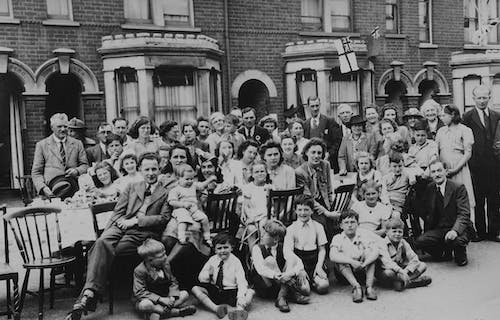
Do you often wish that your ancestors had left you more genealogy clues that you’re currently working with? That might be all of us family researchers at some point. If only they had labeled that one photo, or if only the journal entries made more chronological sense, right?
The sad truth is that most genealogy research is an emerging hobby, and our ancestors from hundreds of years ago couldn’t have possibly thought that we’d be this interested in their everyday lives. But you have the chance to change this! The genealogy enthusiasts in your future generations don’t necessarily have to scour around for genealogy clues like you’ve had to.
Here’s what you need to know about leaving genealogy clues for the future genealogists of your lineage.
Make Yourself Your First Project
When you want to leave helpful clues for future generations, it’s a good idea to start with yourself and expand from there. You can do this by recording and organizing all of your information in the form of important documents, photographs, and other potential genealogy resources.
What you’re essentially doing is recording all of your own personal history. So, for instance, you should make copies of your birth certificate, marriage certificate, and other educational documents and degrees. Also, collect the photos, letters, diaries, and other items that reflect your life, and store everything where it’s easily accessible. Make sure to keep the resources physically and digitally accessible.
You never know; some 100 years from now, you may become the focal point for someone from your future generations starting their own family research.

Interview Older Relatives That Are Alive During Your Lifetime
You may not have realized this, but you have access to an irreplaceable source that future generations can never access for their own research. But you can be their bridge.
The older relatives that are alive at the moment, during your lifetime, won’t be alive a few decades later, so collect whatever information you can from them and record it for those who will come much later. From family traditions to stories and memories, there’s a lot you can learn from these relatives. Consider recording audio or videos of them talking about their memories and experiences; these will serve as solid genealogical clues for future researchers.
Label And Organize Your Entire Family Photos Collection
Photographs are one of the best sources for genealogists because they bring your ancestors’ lives to life. To help future generations, you must not only label and organize old photographs that you have, but you should also take photographs that reflect your life experiences most accurately and make sure to label these photos well.
For instance, for every photo, you should label it with the date it was taken on, the event, the location, and the people in it. Create a digital archive, preserve these photos, and keep adding to your collection for as long as possible. The better you catalog and document photos, the easier it’ll be for future generations to learn about you.

Digitize All the Documents to Preserve Them
Genealogists face many brick walls due to missing or damaged documents, so make sure to preserve yours well. You should definitely work on preserving the original physical copies by storing them in acid-free folders and sleeves. Additionally, you should consider creating digital copies of all your important documents by scanning them and storing them on hard drives, cloud storage, or online platforms.
The more places you spread them in, the easier it’ll be for your future generations to find and verify them.
Work On a Comprehensive Family Tree
Do you sometimes wish you didn’t have to work on your family tree from scratch? Well, you can make sure that the genealogists from your future generations aren’t left wishing for the same.
Since you’re interested in genealogy, this isn’t even extra work, you’re just working on your family tree project, and it’ll be helpful for those who come much later! Make sure the family tree has as much information as you can find and confirm. Don’t forget to use online tools and platforms that can help you format the tree properly and identify connections between different branches of the family.
Your well-structured family tree could be a game-changer for your future generations!
Visit And Collect Information from Ancestral Sites and Cemeteries
You’ve probably seen old buildings and other sites deteriorating during your life, right? There is a fair chance that the cemeteries where your ancestors are buried may not exist for a few centuries. It could be due to natural disasters or any other reasons, but regardless of the reason, your future generations may not have access to these ancestral sites or cemeteries.
So, how about you visit and do the research right now on their behalf? Also, don’t forget to take lots of pictures so that they can see what these spaces look like even after they’re long gone.
Work On a Family History Book

One of the best things you can do for your family’s future researchers is to create a family history book. Because let’s be honest, how many times have you wished that you could just instantly find a way to break through a brick wall—maybe time travel and figure out things for yourself?
Well, once you create a family history book for future generations, you’re doing half their work for them. They can still do their own research but turn to this book for fact-checking and extra information!
If all of this sounds worthwhile to you, and you’d like to get started on your family history research right away, you can ask us for help. We offer legal genealogy services at DavisDNA And Family Research to help you discover your family history.
